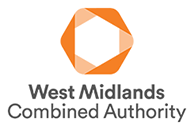Apprenticeship Details
 Please find below some information that you may find useful regarding apprenticeship.
Please find below some information that you may find useful regarding apprenticeship.
What Is An Apprenticeship?
Apprenticeships are an excellent way of gaining qualifications and workplace experience. As an employee, you can earn as you learn and you gain practical skills from the workplace. An Apprenticeship is essentially a set of qualifications called a ‘framework’ developed by Sector Skills Councils. Most Apprenticeship frameworks follow a standard format that comprises:
- A National Vocational Qualification (Level 2 for Apprenticeships, Level 3 for Advanced Apprenticeships)
- Functional Skills
- A Technical Certificate. (Required in some qualifications)
The learning provider provides the knowledge and develops skills while the employer provides the practical experience to put those skills to the test. Training can be classroom based, in a workshop or in a workplace, depending on the subject and on the learning provider.
What Types Of Apprenticeships Are There?
Apprenticeships are available in all sectors and industries throughout England.There are more than 250 different types of Apprenticeships available offering 1,400 job roles, in a range of industry sectors, from childcare to sport and many other sectors. They generally fall into one of three categories:
- Intermediate Level Apprenticeships (level 2)
- Advanced Level Apprenticeships (level 3)
- Higher Apprenticeships (Level 4 & 5)
What Are The Advantages Of An Apprenticeship?
Getting qualified while on the job can also mean:
- you work better and more effectively
- it can set you up to move into new and better jobs
- you get better pay
- you get to experience new and different challenges
- your existing skills and knowledge are recognised and can help you gain a qualification faster
- you learn at your own pace and get support when you need it
- better job security
- you gain skills and knowledge which can be used across a range of jobs and industries
What Time Of Year Can Apprentice Start?
An Apprentice can start at any time of year. When you begin the work-based training depends upon the availability of a position at an employer.
What Does It Involve? How long does it last?
An Apprenticeship includes the following components:
- A knowledge based element
- A competence based element
- Functional Skills
- A module on employment rights and responsibilities
Level 2 programmes 12 – 14 months.
Level 3 programmes 12 – 24 months.
What Are Functional Skills?
Diagnostic and Initial assessment to determine if you are eligible for the chosen apprenticeship.
Many different industry sectors share the same skill sets.These core skills are transferable across sectors and are built into the Apprenticeship to maximise flexibility and choice for employers and apprentices.They include:
- Communication (mandatory)
- Application of number (mandatory)
- ICT
- Working with others
- Improving own learning and performance
- Problem solving
Functional Skills to be completed across subject specific areas
- English
- Mathematics
- ICT (If applicable to your apprenticeship)
- Depending on the level of the apprenticeship you are undertaking will determine the level you will work towards. either Level 1 or 2.
GCSE’s
- Some specific level 3 apprenticeships may require GCSE grade A*-C in Maths and English as an entry requirement.
National Pay Requirements
The National Minimum Wage (NMW) for apprentices is £3.30 per hour. However, as skills develop, many employers tend to increase wages – in fact, research has found that apprentices can earn an average of £170 net pay per week.
The apprentice NMW applies to all 16 to 18 year olds and to those aged 19 and over in the first year of their Apprenticeship.
If the apprentice reaches 19 years-old and has completed the first year of their Apprenticeship their employer must pay them at least the full NMW rate for those aged 18 to 20.
If they are already 19 and have completed the first year of their Apprenticeship they must be paid at least the NMW rate for their age.
https://www.gov.uk/national-minimum-wage-rates
Is There An Upper Age Limit For Apprenticeships?
No
What Is A Framework?
There are a number of elements to each Apprenticeship and this is called the Framework.This means you will get a range of qualifications as you progress through your training and education. Each Apprenticeship framework has three main strands:
- A competence based element
- A technical element
- A skills element
The three strands are sometimes accompanied by additional qualifications to give the most relevant skills and knowledge required for the job that you are employed in.
What’s Involved In The Selection Process?
The selection process is just like any other job application process. Individuals are put through a series of interviews, and in some cases, tests, to establish if they are the right fit for the role.
Do I Get To Choose Where To Work?
Yes. It’s up to you to choose an employer but learning providers can help you decide.
What Are The Entry Requirements Of An Apprenticeship?
Different Apprenticeships have different entry requirements. However the most important requirements are that:
- You must be living in England and not taking part in full-time education.
- You must be aged 16 or over.
- If you took your GCSEs more than five years ago and didn’t gain a top grade (A or A*), or you don’t have good GCSE grades in Maths and English you will need to take a literacy and numeracy test.
Do Apprentices Have To Pay Tax And National Insurance?
As is the case of all employees aged over 16, all apprentices must still pay tax and national insurance on their income.
Already Got A Job – Can I Still Do An Apprenticeship?
Yes. If your employer agrees, you can become an apprentice where you work now.






